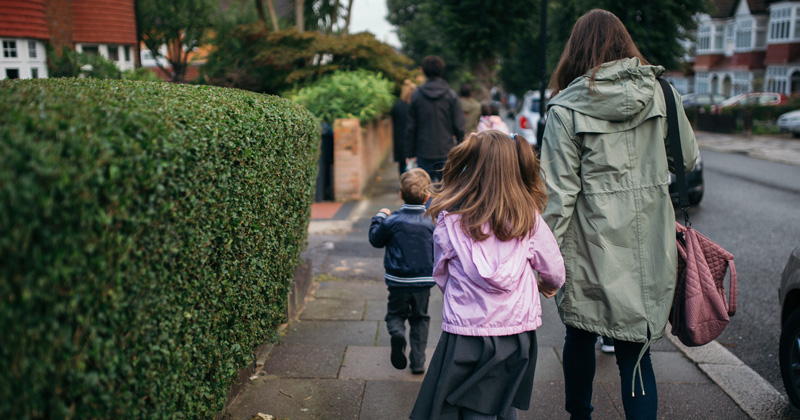Rates of school absence have increased dramatically since Covid. More than a quarter of all secondary pupils are now defined as persistent absentees, missing at least 10 per cent of school sessions. Primary numbers are not much better.
Is there anything we can learn from the past about how to deal with absenteeism? On a recent episode of my podcast, Lessons from History, we looked at how the introduction of compulsory education in the late 19th century led to an intensive state effort to get all children in school.
But many parents were reluctant. Some depended on their children’s labour; others resented the state telling them what to do. And then, as now, illness was a problem. In London schools of the 1890s, outbreaks of ringworm, measles and chicken pox limited the time children spent in schools.
The government reacted with a mix of carrot and stick. Many of the early state school buildings were beautifully designed and built. They were often nicer than pupils’ homes, with airy classrooms and lots of natural light. In fact, the buildings were so nice, and the educational offer so good, that some local authorities worried that rich families were sending their children to them when they should have been paying their own way!
Many of these brick buildings are still in use as schools or accommodation. We recorded a separate podcast about these iconic structures and were amazed by the number of teachers who spoke fondly about their time teaching or studying in them.
Over time, many schools further encouraged attendance by abolishing attendance fees, and establishing links with charities that provided free meals, clothing and medical care.
But there were punishments for non-attendance too, some of which today seem exceptionally harsh.
The first schools were often nicer than pupils’ homes
Local school boards employed a small army of school visitors – often ex-policemen or military men – who gathered details on all the families in an area and ensured the children attended school. They were nicknamed “kid-coppers” and often met with insults and lies.
Parents could be fined, taken to court and even sent to prison if their children kept missing school. In 1876, one blind and ill father, John Speer, was fined 2s6d because one of his three children did not attend school. He was unable to pay and was sentenced to five days in prison. The Times reported on his case, which resulted in donations of more than £3 to Speer and his family.
Still, this mix of incentives and punishment worked. By 1909, school attendance of 5-14-year-olds was up to 90 per cent. It didn’t get much higher in the decades after that. Just before Covid, it was at about 95 per cent, and now it’s down at 92.5 per cent. But the more significant post-Covid shift is not in overall absence, but in the number of persistent absentees, whose numbers have almost doubled.
So what can we learn from this history of tackling absenteeism? One of the most interesting insights from observers at the time was the way that all of the initial state efforts meant that school-going quickly became a habit. As the first generation of pupils grew up and became parents themselves, they were more likely to send their own children to school. School had become the new normal.
The worry today is that Covid has broken that norm, and that a similar mix of rewards and punishments will be needed to restore it. Schools and political parties are proposing policies that have a lot in common with what was tried in the 19th century: better food, facilities and healthcare in the form of breakfast clubs, new school buildings, and mental health hubs, but also more sanctions in the form of increased fines and the removal of child benefit. We’ll have to wait and see if they will have the same impact.








Your thoughts